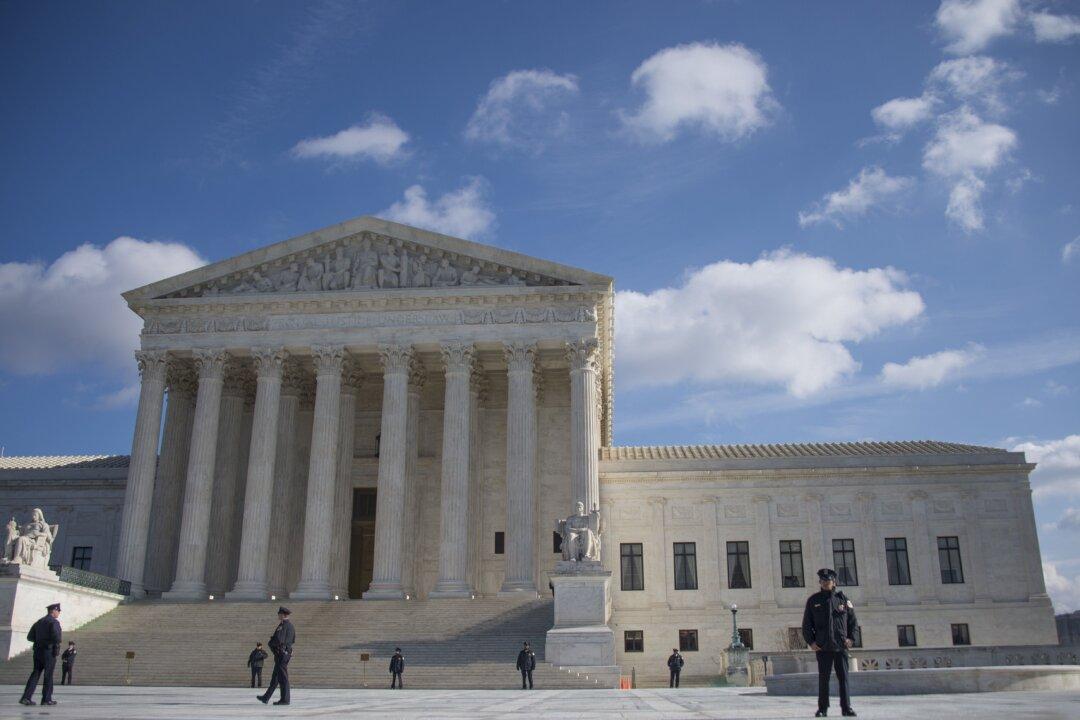Activists are lining up to to defend Obamacare in its current form as King vs. Burwell, the Supreme Court case that could radically alter how insurance exchanges are run, is scheduled for its first oral hearing on March 4th.
On Wednesday, the Catholic Health Association will file a brief in support of the current implementation of the Affordable Care Act, and will hold a press conference with Rep. Sander Levin (D-Mich.) featuring people who lose their healthcare if the court rules against Obamacare. Millions of people risk losing insurance subsidies should the plaintiffs win.
Health insurance subsidies flow through a federal exchange in 36 states, and the plaintiffs have challenged the subsidy program, saying it is a violation of the Affordable Care Act. They argue that only exchanges “established by a State” qualify for federal subsidies. Currently, only 14 states have set up their own insurance exchanges.
“To assist those who lack employer-sponsored insurance, and because it couldn’t command states to establish exchanges, Congress authorized these credits for residents of states that do create the exchanges. The statute expresses this design in language that is clear as day: Individuals receive tax credits if they bought a qualifying health plan ’through an Exchange established by the State,'” the Cato Institute wrote in a brief.
Cato argues that the law originally intended for the states to set up their own exchanges, but when the states did not agree the Obama administration conducted its “own lawmaking” to ensure a “pain-free implementation” of the ACA.
“A ruling that upholds his [Obama’s] behavior sets a dangerous precedent for the nascent ACA superstatute,” Cato wrote. “Such a precedent could be used in the future to license virtually any executive action that modifies, amends, or suspends any duly enacted law.”
Congressional Intent
Defenders of the law point to the way the Congressional Budget Office studied the bill as evidence that Congress did intend to legislate a federal exchange.
“The CBO never assumed that subsidies would only be paid in state exchanges,” said Timothy McBride, a professor at Washington University in St. Louis’ Institute of Public Health. “Nobody in Congress complained about this. They’ve done 68 different scores of the bill.”
Detractors of Obamacare point out that the original healthcare reform bill crafted by the Senate’s Health, Education, Labor, and Pensions Committee included language that explicitly withheld exchange subsidies if a state did not enforce the employer mandate. Parts of the Senate bill were cut out in the final version of the ACA, but clauses that conditions federal subsidies on state exchanges were kept.
The last time Obamacare was challenged in the Supreme Court in 2012, Chief Justice John Roberts voted with the four progressives in the court to uphold the individual mandate of the ACA, making federal exchanges vulnerable to a swing-vote to the right from Roberts.
“He might feel some guilt [for upholding Obamacare in 2012] and vote the other side,” McBride said.
A study by the left-leaning Urban Institute projected that, assuming Congress doesn’t craft a suitable alternative, 8.2 million people could lose their healthcare if the court sides with the plaintiffs in King.





